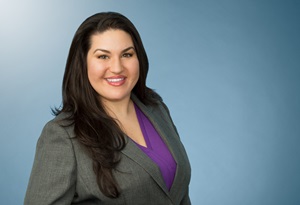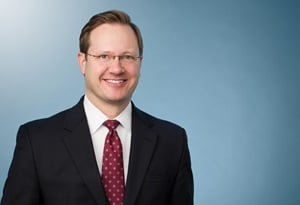NLRB Invalidates Employer's "No Recording" Policies, Bolstering Employees' Ability to Record in the Workplace
Christmas came a day early for labor unions. On December 24, 2015, the National Labor Relations Board (NLRB) issued a decision that invalidated two employee handbook policies prohibiting employees from recording conversations, phone calls, images or meetings in the workplace. In Whole Foods Market, Inc. and United Food and Commercial Workers, et al., 363 NLRB No. 87, the NLRB found that requiring employees to get management’s approval before recording certain aspects of the work environment with a camera or other recording device violated the National Labor Relations Act (NLRA) because employees would reasonably interpret such rules as a prohibition on recording protected concerted activities.
The first rule, which was in a handbook section titled “Team Meetings,” prohibited employees from recording conversations, phone calls, images or company meetings with any recording device (including cell phones, digital cameras, etc.) without prior approval from management or without the consent of all parties to the conversation. The stated purpose of this rule was to “encourage open communication, free exchange of ideas, spontaneous and honest dialogue and an atmosphere of trust.” The second rule, which was under the heading “Team Member Recordings,” prohibited recording conversations with any recording device without prior approval. The stated purpose of this rule was to “eliminate a chilling effect on the expression of views that may exist when one person is concerned that his or her conversation with another is being secretly recorded.”
In assessing these rules, the NLRB’s two-member majority first noted that it already recognizes “photography and audio or video recording in the workplace, as well as the posting of photographs and recordings on social media” as protected activity if employees are acting in concert for their mutual aid and protection and no overriding employer interest is present. The majority then listed a number of examples of such protected activity, such as “recording images of protected picketing, documenting unsafe workplace equipment or hazardous working conditions, documenting and publicizing discussions about terms and conditions of employment, documenting inconsistent application of employer rules, or recording evidence to preserve it for later use in administrative or judicial forums in employment-related actions.”
The NLRB then noted that the “rules at issue here unqualifiedly prohibit all workplace recording.” While the rules also had language establishing their purpose (open communication, free exchange of ideas, etc.), the NLRB found this did not “cure the rule of its overbreadth.” On this point, the NLRB distinguished a prior decision that a hospital’s policy prohibiting the use of cameras for recording images did not violate the NLRA, since employees would reasonably interpret the rule as a legitimate means of protecting patient privacy interests and the hospital’s HIPAA obligations. According to the NLRB, Whole Foods’ business justification was “not nearly as pervasive or compelling as the patient privacy interest” in that case. Given these policies’ “broad and unqualified language,” the NLRB found that employees would reasonably read them as prohibiting recording activity that would be protected by the NLRA. Thus, the NLRB ordered Whole Foods to rescind the policies and post a notice at all store locations — not just the ones at issue in this case — informing employees of the rescission.
One member dissented from the NLRB majority’s decision and reached the opposite conclusion — when reading the rules as a whole, including their stated purpose, they “obviously are intended to encourage all communications, including communications protected” by the NLRA, and “[n]ot only are these no-recording rules aimed at fostering collective activity and free expression, the same rationale has been fully embraced by the Board” in past decisions. The dissenting member also stated that “making visual and/or audio recording is often a solitary activity, not a concerted one” thus there are few instances where “no recording” rules would even apply to protected activity.
As a result of this decision, all employers (including those without a unionized workforce) should carefully examine any policies or rules that prohibit recording in the workplace. Blanket policies and rules that are not narrowly tailored to protect a compelling business interest (such as the confidentiality of patient information, trade secrets or other proprietary material) and to permit recording activity protected by the NLRA are likely overbroad and ripe for challenge. If you have questions about this decision or would like to ensure your rules and policies will pass muster if scrutinized by the NLRB, contact any of Faegre Baker Daniels’ labor management relations lawyers.
The material contained in this communication is informational, general in nature and does not constitute legal advice. The material contained in this communication should not be relied upon or used without consulting a lawyer to consider your specific circumstances. This communication was published on the date specified and may not include any changes in the topics, laws, rules or regulations covered. Receipt of this communication does not establish an attorney-client relationship. In some jurisdictions, this communication may be considered attorney advertising.



